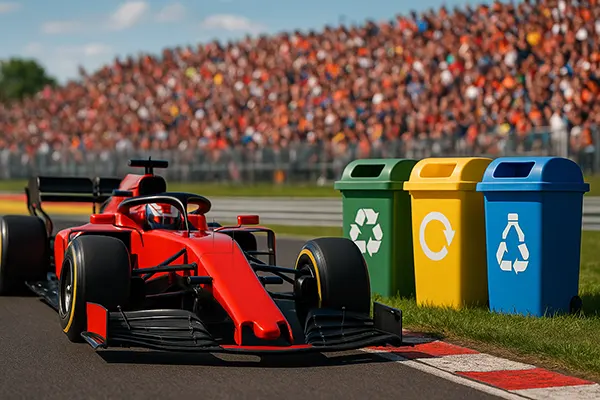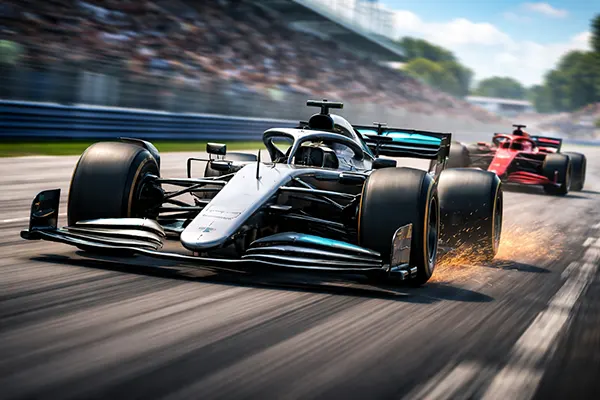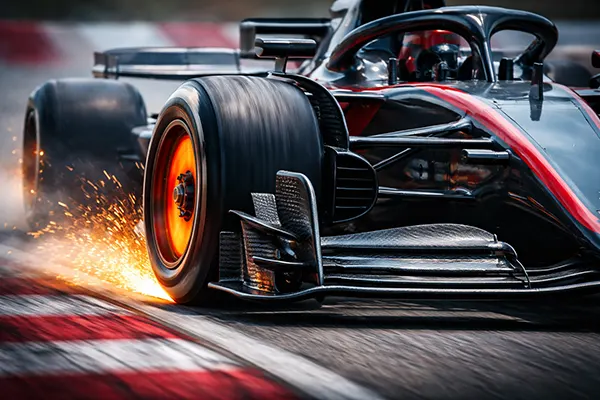
Environmental and Social Impact of Motorsport: What’s Changing and Why It Matters
Motorsport has entered a new era where speed and sustainability must coexist. Once seen as a symbol of excessive fuel consumption, it is now a testing ground for innovation that can help reduce carbon emissions and promote cleaner technologies. In 2025, racing is no longer just about victory laps — it is about shaping a responsible future for mobility and society.
Industrial Regulations and Green Innovations
The world’s leading racing series have embraced strict environmental regulations that drive cleaner technology development. Formula 1, for instance, has committed to achieving net-zero carbon status by 2030, supported by 100% sustainable fuel already in testing for the 2026 engine era. Similarly, MotoGP and the World Endurance Championship (WEC) are switching to renewable fuels and hybrid powertrains to minimise carbon footprints without compromising performance.
These initiatives extend beyond engines. Circuits are investing in renewable energy systems such as solar grids, energy recovery stations, and electric vehicle infrastructure to power races sustainably. The iconic Silverstone Circuit now generates a significant portion of its energy from solar panels, while the Circuit de Barcelona-Catalunya has implemented full recycling and water-saving systems. This industry-wide transformation reflects a growing awareness that sustainability and competition can go hand in hand.
Moreover, FIA environmental accreditation programmes push all teams and circuits to meet measurable targets. Compliance is not only encouraged — it has become an expectation. Motorsport is no longer content with offsetting emissions; it aims to prevent them through design, logistics, and smarter engineering.
Technological Leadership Beyond the Track
The technological innovations born in racing are rapidly influencing the wider automotive industry. The advanced hybrid systems developed in Formula 1 and WEC have accelerated efficiency improvements in commercial vehicles. Likewise, Formula E’s breakthroughs in battery cooling, regenerative braking, and data-driven energy management are now being adapted for public transport and consumer electric cars.
This direct technology transfer underscores motorsport’s vital role in global sustainability efforts. What was once developed for competition now supports cleaner mobility in everyday life. Racing remains a laboratory of progress — one where manufacturers, engineers, and regulators collaborate to make transport safer and greener.
By 2025, the competitive landscape is defined by innovation that benefits both racers and the planet. Motorsport’s capacity to push boundaries continues to inspire industries far beyond the paddock, proving that speed can coexist with responsibility.
Community, Fans, and Sponsorship Shifts
The sustainability revolution has also reshaped fan culture and sponsorship models. Supporters increasingly expect their favourite teams and brands to act ethically and environmentally responsibly. Surveys conducted in 2024 by Nielsen Sports show that over 70% of motorsport fans now consider sustainability an important factor in their loyalty to teams or sponsors.
Brands are responding accordingly. Global corporations such as Shell, DHL, and Heineken have transformed their partnerships into platforms for promoting renewable energy, waste reduction, and social inclusion. Motorsport events now include initiatives like tree planting, e-waste recycling, and sustainable transport programmes for spectators. Formula E even partners with cities to improve urban mobility infrastructure, leaving a tangible positive legacy after each race.
Social impact has also gained attention. Diversity, inclusion, and education programmes are expanding within teams and organisations. Initiatives like FIA Girls on Track and Mission 44 by Lewis Hamilton aim to make motorsport accessible to underrepresented groups, fostering new talent and equal opportunity across all levels of the sport.
Media Coverage and Public Awareness
Media platforms are playing a vital role in amplifying sustainability narratives. Broadcasters highlight green innovations, while documentaries and digital campaigns bring attention to the sport’s role in climate responsibility. This shift not only attracts environmentally conscious audiences but also strengthens motorsport’s image as a driver of global progress.
Fans now consume content with greater awareness — from live energy statistics during races to behind-the-scenes features showing how teams minimise waste. Transparency has become an essential part of the viewing experience, turning environmental progress into an integral element of fan engagement.
In essence, motorsport’s media transformation reinforces the message that racing can serve as both entertainment and education, inspiring audiences to adopt sustainable habits beyond the racetrack.

Future Outlook: The Next Decade of Sustainable Racing
Looking ahead to 2035, the path of motorsport will be defined by deep integration of renewable technologies, digital innovation, and circular economy models. Hydrogen power, already tested by projects such as H24 Racing, is expected to complement electric and hybrid propulsion systems. The result will be an even cleaner form of racing that demonstrates what’s achievable for the wider transport sector.
The next generation of circuits will aim for total sustainability, featuring on-site energy production, zero-emission logistics, and fully recyclable materials. Smart infrastructure will also play a role — with data analytics guiding everything from tyre recycling to food waste management during events. Motorsport’s operational footprint is expected to shrink significantly as environmental auditing becomes a mandatory standard.
Beyond technology, the social responsibility of motorsport will expand. Education partnerships, STEM outreach, and community-based initiatives will make racing a force for positive change. As global audiences demand greater accountability, motorsport’s leadership in sustainability will continue to set an example for other high-emission industries.
Why It Truly Matters
The evolution of motorsport towards environmental and social responsibility is more than a branding exercise — it’s a necessity. The industry’s influence on global mobility, manufacturing, and culture means every innovation has far-reaching effects. Each hybrid engine, circular economy project, or social programme contributes to building a more sustainable world.
In 2025, motorsport’s challenge is not to slow down but to accelerate change in the right direction. The commitment to sustainability reflects an understanding that progress in racing can mirror progress in society. By redefining what performance means, motorsport demonstrates that responsibility can indeed be the ultimate form of innovation.
This transformation proves that racing’s spirit of excellence is perfectly aligned with the pursuit of a cleaner, fairer, and more inclusive future — both on and off the track.




